Related Projects
Home » Related Projects
NENUPHAR
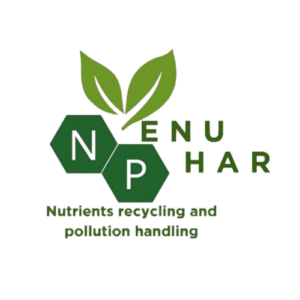
NENUPHAR is a European research and innovation project focused on advancing nature-based solutions and sustainable land and water management through the integration of scientific knowledge, digital tools, and stakeholder engagement. The project aims to support more resilient ecosystems and production systems by developing, testing, and demonstrating innovative approaches that balance environmental, economic, and social objectives.
EU-20020 - EJP SOIL

The main objective of EJP SOIL is to create an enabling environment to enhance the contribution of agricultural soils to key societal challenges such as climate change adaptation and mitigation, sustainable agricultural production, ecosystem services provision and prevention and restoration of land and soil degradation. The EJP SOIL will build a sustainable European integrated research community on agricultural soils and will develop and deploy a roadmap on climate-smart sustainable agricultural soil management.
BAAT: Fertilisation Advice for Arable Farming Future-oriented/ BAAT: BemestingsAdviezen Akkerbouw Toekomstgericht

The aim of this project is to develop a set of new fertilisation recommendations for arable farming that better balance the needs of crops, soil and nutrient supply, while also contributing to the above social challenges.
Clean Water / Schoon Water voor Brabant
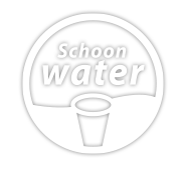
Clean Water is the theme for several incentive projects aimed at keeping groundwater and surface water clean. They are initiated by provinces, water boards, drinking water companies and representatives of land users such as farmers, local authorities or businesses (sites). The aim is always to reduce emissions of herbicides and crop protection products into surface water and groundwater: towards clean water! We are working on this with all users of these products. Since 2001 and with success. Delphy is involved with the experts arable farming and tree cultivation with trials in onions on sand and demonstrations about robotization.
Akkerbouw voor Waterkwaliteit / Water Quality on Sandy Soils
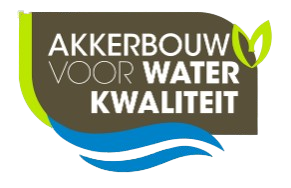
In the Netherlands, emissions of nutrients (such as nitrogen) that end up in groundwater and surface water are often still too high. This is particularly true on sandy soils. In the Arable Farming for Water Quality pilot project, fourteen arable farmers on sandy soils in the north-east and south-east of the Netherlands are working to reduce these emissions on their farms. They are doing this in collaboration with advisers and researchers.
Bemest op zijn best / Fertilising at its best

Fertilising at its Best is an innovation programme aimed at reducing ammonia emissions when applying fertiliser to land. The focus is on (technical) innovations and improving the methods used to apply fertiliser. Ideas for this are gathered from the field and tested in practice together with stakeholders. The programme has two main objectives. 1. To halve ammonia emissions from fertiliser application on land by developing innovative techniques. 2. To gain broad support for new techniques and thus achieve a high implementation rate. The programme is based on co-creation.
Deltaplan Agrarisch Waterkwaliteit / Delta Plan Agricultural Water Quality

Water is essential for our livestock and crops. Healthy soil ensures optimal crop growth. How a farmer manages soil and water is entirely up to him. Everyones situation is different from that of their neighbours. However, some issues may not be so easy to resolve on our own. The Delta Plan for Agricultural Water Management helps to get a grip on soil and water management. With soil and water projects, knowledge sharing, financing, measures and attention to our plans. For sufficient and clean water and healthy soil, now and in the future.
Beatles

The promotion of climate-friendly agriculture (CSA) is what the BEATLES project is committed to, working closely with farmers, consumers, businesses, policymakers, ea. 📞 The project, in which Delphy is a partner, is conducting surveys in six countries to investigate and identify the most important factors influencing the adoption of CSA, such as farmer attitudes, technologies and government support. ❓Ask how people view fair business models. 🤷Investigate what people know about available technologies and how the government can support them. ☝️Discuss how climate-friendly agriculture policy can be adapted accordingly. 💡In the newsletter, you can read about the discussions that different groups are having about fair business models and policies for CSA. What ideas about CSA and EU policy are out there and how can we stimulate innovation for more sustainable agriculture?
Agro Ecology is Good

The GOOD experiment is part of the guided tours on International Onion Day 2025🧅In Agroecology, GOOD organises Delphy at aikc-rusthoeve, Colijnsplaat, one of the 16 Living Labs in this project. Delphy compares agroecological weed control with the “conventional” approach and show how AWM can reduce the use of synthetic herbicides and increase sustainability and resilience.🍃
LiveSenMap
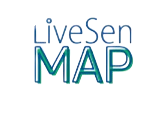
LiveSenMap is a European research and innovation project aimed at improving the monitoring and management of agricultural and environmental systems through the integration of Earth Observation data, in-situ sensors, and advanced data analytics. The project focuses on transforming heterogeneous data streams into reliable, actionable information to support decision-making for farmers, advisors, policymakers, and other stakeholders.
Nutri-know
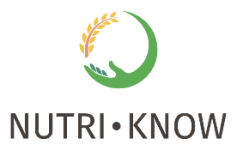
NUTRI-KNOW aims at improving nutrient management practices in European agriculture. By consolidating knowledge from various EIP-AGRI Operational Groups across EU member states, it seeks to address urgent needs, challenges, and opportunities for farmers. Through a platform and thematic network, NUTRI-KNOW aims to facilitate the exchange of information, strengthen knowledge flows, and promote sustainable agricultural practices. Ultimately, the project aims to reduce reliance on imported mineral fertilisers, improve agricultural and environmental management, and enhance the overall efficiency and sustainability of the European agri-food sector.
BBioNet8
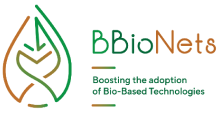
BBioNets is a thematic network that relies on, promotes and further advances the work carried out by EIP-AGRI Operational Groups (OGs) with respect to the management and/or processing of agricultural and forest biomass with Bio-Based Technologies (BBTs). Its objective is to incite primary producers all over Europe to embrace and adopt BBTs that will enable them to reduce greenhouse gas emissions, make better use of underutilised biomass, create new diversified incomes, reduce costs through circular practices, increase farm/forest sustainable management, and create/develop new value chains.
NutriBudget
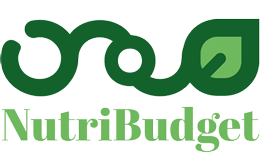
Optimising agricultural nutrient balances:
– Developing a model capable of predicting the spatial flows of nutrients and carbon in the main European agricultural systems, from the regional to the farm level.
– To co-create a decision-making tool (Nutriplatform): an integrated nutrient management platform to help optimise the use of nutrients to reduce pollution and losses.
– Testing and implementing innovative mitigation measures in five pilot cases.
Biorefine Cluster Europe
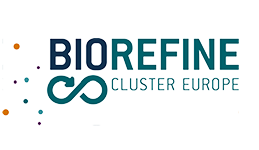
The Biorefine Cluster Europe interconnects projects and people within the domain of biobased resource recovery, striving to contribute to a more sustainable resource management.
SOLACE

SolACE is focusing on three major crops grown in Europe: bread wheat, durum wheat and potatoes. The project will identify :
– The optimal combinations of above- and below-ground traits to improve resource use efficiency (water, N and P).
– The genotypes with the best yields under combined water and N or P constraints.
– Innovative practices that make the best use of plant-plant and plant-microbe interactions to access water, N and P resources in conventional, organic and conservation agriculture.
The partners are testing different techniques such as varietal mixes, rotation changes, legume-based intercrops, cover crops, microbial inoculants and improved decision support systems to cope with these stresses.
LegumES

The legumES will ensure:
1. the uptake of best practices in agrobiodiverse legume-based cropped systems;
2. the uptake of methodologies and tools to quantify and balance the environmental and economic ecosystem service (ES) benefits provided by legumes;
3. that the ES benefits and cost offered by legumes are quantified across scales from field, farm, regional, national, and global levels;
4. ES will be assessed to identify those conditions which are able to meet the EU targets: to decrease agrichemical inputs and losses, combat climate change, reverse biodiversity loss, and ensure the best nutritional provisioning.
To help achieve this LegumES also centres activities on a suite of 25 innovative legume-based Pilot Studies which use a wide range of legume species and types, plus different cropping approaches and linked value chains spanning the pedoclimatic regions of Europe.
Nutrient Recycling
– Identify relevant techniques (e.g. composting, bio-digestion, etc.) to process livestock manure and other organic sources and assess the agronomic and environmental value of the derived products (e.g. nutrient availability, quality, impacts on soils, contaminants, etc.).
– Contextually, identify tools and instruments to help farmers to measure the nutrient content (and availability for crops) and recommendations for the application of these products.
– Analyse economic and technical factors (e.g. livestock management practices, sanitary aspects, etc.) that stimulate or limit the use of these products in agriculture and indicate how to address them exploring the role of innovation and knowledge transfer.
– Illustrate possible strategies to adapt derived products to market demands (e.g. development of quality standards) and successful business cases that exist at farm level, local and regional scale.
– Identify research needs from practice, possible gaps in technical knowledge, and further research work to address them.
– Suggest innovative solutions and provide ideas for EIP-AGRI Operational Groups and other innovative projects.
FAIRshare

FAIRshare aims to support farm advisors to use Digital Advisory Tools and Services (DATS) to support a more productive and sustainable agriculture FAIRshare has two main components:Firstly, gather an evidence base of the digital tools and services used internationally. The inventory of tools will be accessible on an intuitively navigable online interface that has been co-designed with end users. Accompanying the tools in the online inventory will be information, for instance short ‘good practice’ vignettes, on how the tools may be used/adapted for use.
Secondly, generate and resource a ‘living laboratory’, empowering advisor peers from across the EU to interact with the online inventory and, in a series of workshops, to exchange, co-adapt, co-design and apply digital tools in their individual advisory contexts.
PREMIERE

PREMIERE will foster the effective preparation of successful multi-actor proposals for Horizon Europe and beyond by developing a suite of support activities and easy-to-use materials:
– Organisation of brokerage events for forthcoming Horizon Europe calls for multi-actor projects
– Pilot seed funding for project proposal development, including specific to engage EIP-AGRI Operational Groups in Horizon Europe
– Celebration of successful new multi-actor projects at Granting Parties
– Multi-actor training through a multi-actor simulation game, an online Serious Game, an Online Academy, and a MOOCas well as offline training-for-trainers
– Divers output such as online videos, creative videos, How-to-Guides etc.
– Recommendations and briefings for the European Commission, their services and external evaluators to help to ensure the implementation of the multi-actor approach in new project proposals.
ReNu2Cycle (ReNu2Farm)
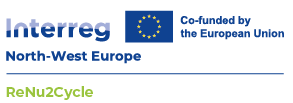
ReNu2Cycle is building on the achievements of ReNu2Farm which provided basic and regional quantified fertiliser demand research. New co-development and implementation that need to be performed to adapt regional best-practices for NWE:
– Living lab concepts encouraging long-term co-innovation and implementation support.
– Maximising RDF use by creating innovative fertiliser blends and business solutions for producers portfolios including sustainability assessment.
– Traders will be empowered to consult/market RDFs.
– RDF use at (organic) agriculture farms will be assessed.
– All results will be capitalised in one transregional nutrient supply-demand strategy and regional action plans.
IOF2020
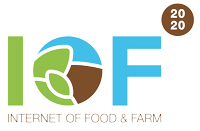
The project implements 19 case studies aimed at the development, evaluation and deployment of a series of connected components and solutions in 5 agricultural production sectors: (fruit, arable crops, horticulture, dairy production, meat production). In terms of impact, the case studies must clearly demonstrate the commercial interest of innovative Internet of Things solutions for a large number of application areas.
IPM Decisions
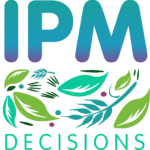
IPM Decisions is focusing on maize, wheat and potato. The project gives farmers and advisers the possibility to access a large number of IPM DSS through a pan-European online Platform and an IPM Decisions Network. The latter being a community of users and stakeholders.
Support

The overall objective of SUPPORT is to pave the way for adoption of IPM tools and technologies by development of relevant and actionable scientific knowledge that will be used in the co-creation design with actors of public policies and private sector strategies.
STRATUS

The overarching aim of STRATUS is to connect advisors across Europe for accelerating knowledge creation and sharing on Integrated Fertilization Management, supporting farmers to bring this knowledge into practice to achieve the ambition of the Farm to Fork and Biodiversity Strategies, thus reducing nutrient losses to the environment while maintaining soil fertility.
Climate Farm Demo
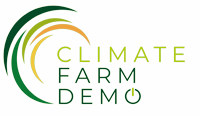
Climate Farm Demo is a unique pan-European network of Pilot Demo Farmers (PDFs) covering 28 countries and all pedo-climatic areas. Its overall aim is to accelerate the adoption of Climate Smart Farming (CSF) practices and solutions by farmers and all actors of the Climate Smart Agriculture Knowledge & Innovation Systems (AKIS) with a view to adapting agricultural production systems to climate change and to achieving a carbon neutral agricultural sector by 2050, thereby meeting the targets of the EU Climate strategy.
Climate Smart Advisors
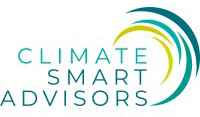
Climate Smart Advisors is about to boost the EU agricultural advisory community, leading to an acceleration of the adoption of climate smart (CS) farming practices
AdvisoryNetPEST

The AdvisoryNetPEST project aims to create a network and upgrade advisory services across the EU to increase the sharing of knowledge and the adoption of innovative solutions to reduce the use and risks of pesticides (RURP) in all EU Member States, enabling the agricultural sector to achieve the targets proposed by the Farm to Fork Strategy.
Oper-8

Oper8 envisions a world where weed control is not just effective but also environmentally friendly and economically viable. We believe in a future where farmers, researchers, and industry professionals work hand in hand to combat weeds and improve crop yields while preserving our planet’s resources.
RuralBioReFarmeries
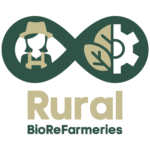
The Rural BioReFarmeries project aims to establish small-scale, decentralized green biorefineries that convert grassland biomass into valuable products like proteins, bio-based packaging, and clean energy. By empowering farmers to process local resources, the initiative seeks to enhance rural sustainability, diversify incomes, and reduce environmental impact across Europe’s grassland regions. Demonstration sites in Ireland, Denmark, and the Netherlands will showcase the model’s scalability and potential for replication.
ICAERUS

Explore drone based opportunities and provide a more complete and interconnected account of their potential and impacts as multi-purpose vehicles in EU agriculture, forestry and rural areas.
TechCoach
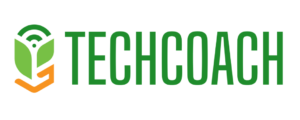
TechCoach is an EU-funded initiative designed to strengthen farmers’ ability to assess, adopt, and effectively integrate Smart Crop Farming (SCF) technologies. By connecting Operational Groups and advisory actors across Europe, TechCoach fosters multi-actor collaboration, accelerates innovation adoption, and promotes sustainable farming practices.
QuantiFarm

QuantiFarm will enable further deployment of digital agriculture technologυ solutions as key enablers for enhancing sustainability performance and competitiveness of the agricultural sector. To this end, QuantiFarm introduces a comprehensive Assessment Framework for independent qualitative and quantitative assessments of the multiple costs and benefits of digital agriculture technology solutions. We ensure replicability and uptake of digital technology solutions by deploying innovative tools, services, recommendations and making them relevant and of practical use to farmers, advisors, and policy makers across Europe.